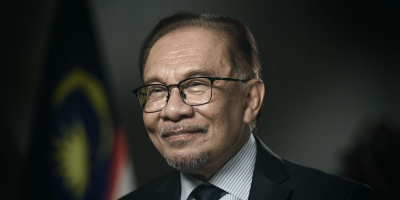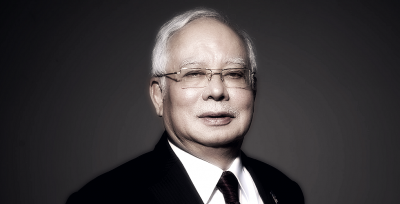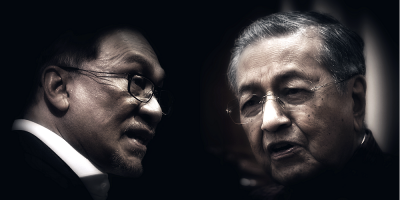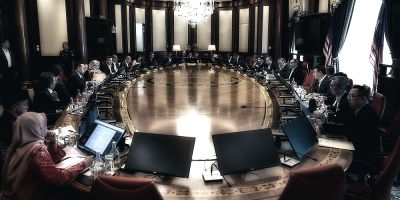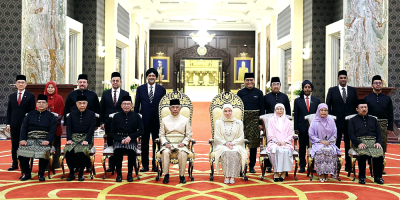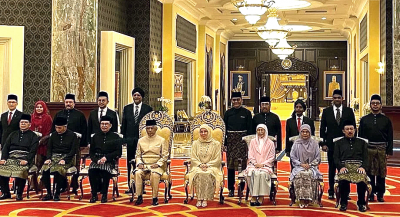Those who have watched Mainland China’s TV series “Da Zhai Men” (The Big Family) should have been deeply impressed by the second sister-in-law (Ersao) in charge of the Bai family’s herbal pharmacy in the play.
The second sister-in-law, played by Siqin Gaowa, is a very capable lady in dealing with problems. Whenever the Bai family has something to ask for help from the courthouse, she will always instruct her representative to bring along more money.
This practice took place at the end of the Qing Dynasty in the late 19th century, when civil rights were still underdeveloped and legal principles were ambiguous, offering money to courts or relevant government departments was a usual modus operandi.
Unfortunately, due to the difficulties in launching the civil rights movement in Mainland China and Malaysia, this lingering tradition still plagues the Chinese society in Mainland China and Malaysia today, where money is commonly used to get favor from officials with approving authority.
There are two levels of involvement of public servants in receiving illegal rewards. One is that individuals or groups take the initiative to send money or gifts to officials, or in the form of free sex, with the purpose of seeking preferential treatment and conditions, commercial secrets, or handling issues beyond the law. This is known as bribery.
Another level is called extortion where public officials with power ask for bribes expressly or implicitly to the applicants as a condition for issuing approval. If the applicants respond poorly, those in power will use excuses to delay or deliberately make things difficult as signal for them to understand their intentions.
A more common practice is that the applicants would act through an agent who draws a certain commission after getting approval stamps from government departments. It is known that many foreign labor agencies act as agents, and an additional fee has to be added to the paid items of the employer.
After Anwar Ibrahim became the prime minister of the unity government, he put forward an open-minded policy on the corruption issue of civil servants.
All those cases committed in the past, as he said, would be let go. The new government would start from scratch and will not dig or settle old scores, and he put strong emphasis that integrity must start from the top leaders who have to take the lead.
It is believed that Anwar’s announcement would warm the hearts of the senior public officials who have been involved in corruption, allowing them to continue to work with peace of mind. Otherwise, they will be in constant panic and spend all their time seeking countermeasures to protect themselves with political parties outside the government, which is not good for the country and society.
I recall in an international conference where I attended more than 20 years ago, an Indonesian scholar expressed his views humorously when asked how corrupt officials should be dealt with following the fall of the Suharto government.
He said if the new government were to cut off the hands of corrupt officials in accordance with strict Islamic laws, the streets of Jakarta would be full of handless people. This caused the audience to roar with laughter! But it also shows the seriousness of corruption in Indonesia at that time.

After nearly 40 years of Umno-led and Perikatan Nasional’s policy of favoring civil servants, it has resulted in two consequences that are not beneficial to the Malaysian society.
One is that the proportion of civil servants to the population is too high, exceeding largely the proportion of an average nation in the world. This has contributed to huge government expenditures but without enhancing the overall efficiency.
The second is that the recruitment of civil servants is racially oriented, which is not conducive to national unity and building up social cohesion in a multiracial society.
It is precisely because the recruitment of civil servants has always been racially oriented, which has created a habit of civil servants supporting Malay political parties with racially or religiously oriented policies, and less support for Pakatan Harapan.
In this regard, Muhyiddin and other leaders of Perikatan Nasional have repeatedly pointed out that Anwar will retaliate against civil servants after becoming prime minister.
Anwar’s statement cited above of not settling corruption accounts has somehow stabilized the hearts of civil servants.
For the sake of national unity and the smooth operation of the current coalition government, we appeal that fighting corruption should start from scratch and this should be jointly carried out in three aspects.
What are the three aspects? One is that the people, including businessmen, should raise their civic awareness and avoid the usual means of bribery.
Second, the solicitation of bribes by civil servants must be strictly supervised, and gradually reach the level of Hong Kong’s ICAC where public servants cannot, dare not, and do not want to be corrupt.
The third is that non-governmental organizations should enhance their capacity to promote civil rights education and instill in ordinary people that civil servants are hired with their tax money. After all, it is civil servants’ duty to serve the people who have the legitimate right to demand such service.
Some people would argue that it is impossible to do this in Malaysia. But think about it, Hong Kong can do it, Singapore can do it, the Netherlands and Denmark can do it, and if we can do half of theirs within five years, won’t we be successful?
But first action must start from you!
(Wong Tai-Chee has his B.A and M.A degrees in Urban and Regional Planning from the University of Paris, and earned his PhD in Human Geography from the Australian National University. After teaching 20 years in Nanyang Technological University, Singapore, he retired in 2013. He then worked as Distinguished Professor for two years at Guizhou University of Finance and Economics, China, and as Dean and Professor at the Southern University College, Johor until the end of 2018. He was Visiting Professor to University of Paris (Sorbonne IV), Visiting Fellow to Pekin University, Tokyo University and University of Western Australia. His main research interests are in urban and economic issues, and more recently on Malaysian politics. Besides his 15 self-authored and edited book volumes, he has written over 100 academic articles and published widely in international journals.)
ADVERTISEMENT
ADVERTISEMENT






